Maximize Your Training: Key Principles for Tactical Athletes
Key Principles for Tactical Athletes
FUNCTIONAL FITNESS
Team Momentum
3/9/20253 min read


To optimize your training and ensure peak performance, it's essential to embrace the following foundational principles: overload, specificity, reversibility, and variation.
Overload
For tactical athletes and first responders, improving fitness means consistently challenging your body through controlled overload. This principle is crucial for fostering long-term adaptations, allowing your body to operate more effectively under the demands of high-stakes situations.
Implementing overload can be done through the FITT acronym tailored to your unique training goals:
- Frequency: Increase the number of training sessions each week or the repetitions in specific drills to enhance endurance and strength.
- Intensity: Escalate the challenge of your workouts. For instance, shift from a 10 km/h run to a more demanding pace of 12 km/h, or add weight to your squats to build strength vital for physically demanding tasks.
- Time: Gradually extend your exercise duration. For example, progress from cycling for 30 minutes to 45 minutes to improve stamina and cardiovascular efficiency for long shifts or rigorous physical activities.
- Type: Vary the types of training you engage in. Transition from walking to running for cardiovascular improvement or advance from using accessory weights to incorporating free weights to better simulate the physical challenges you'll face in the field.
By strategically applying these overload principles, you'll build resilience and enhance your performance, ensuring you’re always ready for the demands of your role.
Specificity
The principle of specificity emphasizes the importance of tailoring your training regimen to align with the unique demands of your role as a tactical athlete or first responder. Your training should reflect the specific physical and skill-related components essential for your tasks, whether that involves navigating challenging terrain, controlling heavy equipment, or executing emergency response protocols effectively.
Identify the predominant energy systems utilized in your duties. For instance, runners and weightlifters engage different physiological processes and understanding this can help you focus your efforts where they matter most. You should prioritize training specific fitness components such as agility for quick decision-making, balance for stability during operations, and muscular endurance to sustain prolonged exertion during critical situations.
Additionally, regularly assess the key factors relevant to your field, such as speed, power, and posture. Conducting assessments will illuminate your strengths and identify areas for improvement, allowing you to address potential imbalances that could affect your performance under pressure.
By focusing in on the conditioning aspects that are most relevant to your role, you can significantly enhance your overall performance and readiness for the challenges you face in the line of duty.
Reversibility
In the demanding world of tactical athletics and first response, the principle of reversibility is a critical consideration: if you don’t maintain your training, the gains you’ve made can quickly diminish. When you cease regular training or significantly decrease your activity level, the improvements in strength, endurance, and overall fitness can regress. To re-establish your previous performance level after a break, it’s essential to gradually rebuild your training intensity and volume.
However, be vigilant about the risks of overtraining. This common pitfall occurs when you push your body too hard without allowing sufficient recovery, leading to fatigue and diminished performance. Unlike planned overload—which involves a strategic increase in workload followed by appropriate rest—overtraining can sabotage your progress and delay your fitness goals.
Proper recovery is vital. If your body is overtaxed and lacks the downtime necessary for adaptation, you risk not only decreased effectiveness in your training but also heightened risk of injury. Ensuring a balanced approach that incorporates ample rest enables you to execute physical tasks safely and effectively, meeting the high standards required in your role.
Variance
In the fast-paced and unpredictable world of tactical athletics and first response, varying your training is essential not only for maintaining interest but also for challenging your body in new ways. Incorporating diversity into your workouts—whether through different movements, circuit training, or even engaging in a completely different sport—can invigorate your routine and promote balanced muscle development. Many elite athletes practice cross-training during their off-seasons to enhance overall fitness while allowing their primary muscle groups a well-deserved break.
Remember, experts recommend keeping periods of complete inactivity to a maximum of two to three weeks. Extended breaks can lead to a significant decline in performance, so it’s crucial to include "maintenance" training—moderate activities that can sustain your conditioning even during downtime. This approach enables you to stay prepared for the challenges you face in the field.
As a tactical athlete, you understand the importance of resilience, both physically and mentally. Ask yourself: Are you currently leveraging these principles of variance in your training? If not, it’s time to reflect and implement strategies that will keep you motivated and moving forward.
Embrace the challenge of diversity in training, and let each session be an opportunity to grow stronger and more capable. Your commitment to continual improvement not only enhances your personal fitness but also strengthens your readiness for any situation that may arise. Remember, every rep, every run, and every challenge pushes you closer to the best version of yourself, both on and off the job. Stay strong and stay sharp!
Enhancing performance and well-being for the service professional lifestyle.
Contact us
info@momentumtrainingpro.com
© 2024. All rights reserved. Momentum Training Institute LLC

